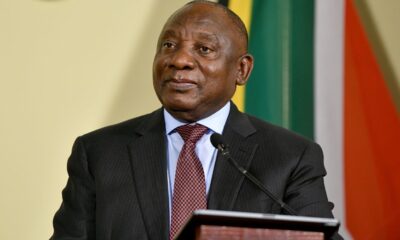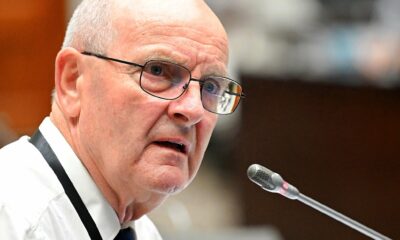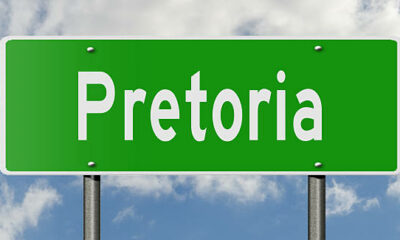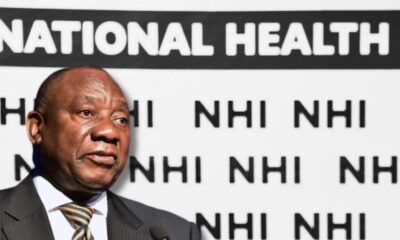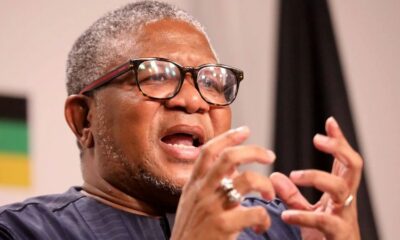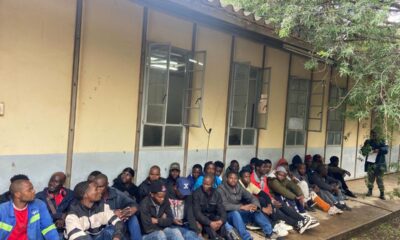News
SA’s G20 Glow Meets MK Party Fury: A Summit Celebration Overshadowed by a Sovereignty Showdown
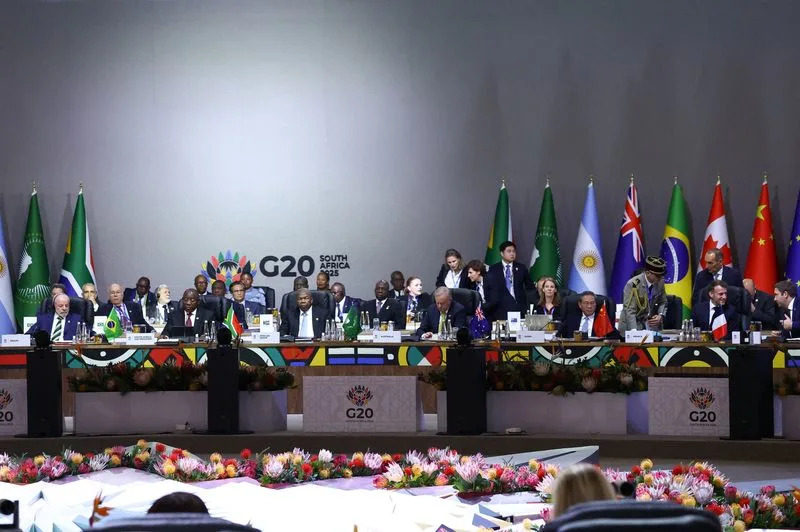
A weekend of applause and one loud objection
For most of Johannesburg, the G20 Leaders’ Summit felt like a national victory lap.
South Africa pulled off a high-stakes global gathering, world leaders were unusually complimentary, and even international media framed the weekend as a diplomatic “win” for President Cyril Ramaphosa.
But while political leaders, youth organisations and unions celebrated, the uMkhonto weSizwe (MK) Party arrived with an entirely different script, one packed with warnings about neocolonialism, resource exploitation, and what they call the “philosophical theft” of African identity.
Their message cut sharply against the general mood:
the G20 declaration, they argue, is not a triumph, but a Trojan horse.
MK Party: ‘Africa is being sold off in diplomatic packaging’
In a fiery statement on Sunday, MK Party spokesperson Nhlamulo Ndlela dismantled the G20 declaration point by point.
To the MK Party, the sweeping commitments to development, debt relief, green transitions, and global cooperation read less like partnership and more like a warning label.
“This document represents a continuation of global power imbalances and the erosion of African sovereignty,” Ndlela argued.
Their biggest grievance?
The G20’s use of Ubuntu a philosophy deeply rooted in African social life, in a document authored primarily by wealthy nations.
MK leaders say this is not cultural celebration. It’s branding.
“G20’s appropriation of Ubuntu is philosophical theft… intellectual dishonesty of the highest order.”
And beneath the warm, polished diplomatic language, the MK Party sees something more menacing:
a new front in the global race for African minerals.
The party warns that critical minerals, essential for renewable energy and tech manufacturing are being framed as part of the “global good,” while the real aim is to tighten international control over Africa’s resources.
The climate contradiction
The MK Party also took aim at what they call a glaring hypocrisy in the declaration:
G20 states expect African nations to commit to sustainability while many of them are expanding fossil fuel production at home.
Their stance taps into a long-standing tension in climate diplomacy, one that many South Africans on social media echoed during the summit:
Why should Africa pay more for a crisis it contributed the least to?
Meanwhile, the rest of the political landscape is celebrating
If the MK Party was the thundercloud over the summit, the Government of National Unity (GNU) partners were the sunshine.
DA: A win for global cooperation
The Democratic Alliance welcomed the declaration almost unconditionally, praising its commitments to easing developing countries’ debt, strengthening climate resilience, and boosting global stability.
DA leader John Steenhuisen framed the declaration as a meaningful step toward a more inclusive world and a strong endorsement of the GNU’s value.
ANC Youth League: Praise with a warning
The ANC Youth League applauded President Ramaphosa’s leadership and SA’s hosting ability, even calling him “one of the most effective consensus-builders of his generation.”
But the youth wing also reminded leaders that young people are demanding more than symbolism.
They want to shape the power structure not just witness it.
Cosatu: A rare moment of unity
Cosatu often one of government’s toughest critics also joined the praise chorus.
Their statement reflected a deeper national sentiment:
that South Africa, despite its political noise and social fractures, tends to rise to the occasion when the world is watching.
What this all cost and what SA stands to gain
South Africa budgeted about R700 million for the G20 experience,
R200 million for the summit itself,
and R500 million for the series of sector-specific conferences leading up to it.
Brand South Africa estimates the economic return at R3.6 billion, supported by the influx of 1.1 million tourists drawn by the global spotlight.
For a Johannesburg tourism sector still recovering from years of instability, that’s not small change.
A deeper story: two visions for Africa’s future
The fierce clash over the G20 declaration isn’t really about a single document.
It’s a reflection of a larger ideological divide inside South Africa and across the Global South:
-
One vision sees cooperation with wealthy nations as a pathway to development, climate resilience and influence.
-
The other sees a slow tightening of old colonial patterns, resource extraction, dependency, and cultural appropriation dressed in progressive language.
Both sides claim to be defending Africa.
Both warn against repeating history.
But they’re reading the same document through completely different lenses.
Where does this leave South Africa?
In a country where political debates are often loud but rooted in lived experience, the G20 fallout is unsurprising.
South Africans have long been wary of outside interests, for good reason.
But they’ve also seen the value of multilateral engagement, especially in an economy hungry for growth and investment.
The real question now is:
Can South Africa balance global cooperation with fierce protection of its sovereignty, without alienating either side of the debate?
If this summit proved anything, it’s that the world is still looking at South Africa as a bridge-builder.
And the bridge is holding, even if people are arguing loudly on it.
{Source: The Citizen}
Follow Joburg ETC on Facebook, Twitter , TikTok and Instagram
For more News in Johannesburg, visit joburgetc.com

